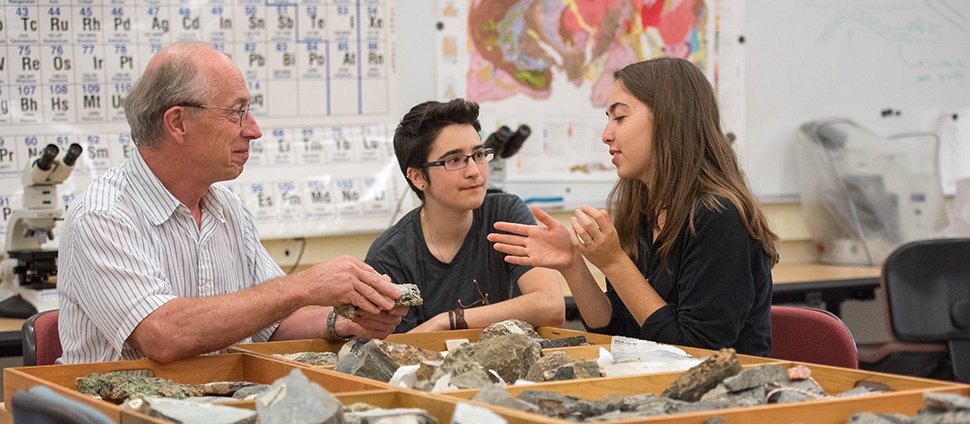Document Type
Article
Publication Date
6-2010
Publication Title
Geologica Carpathica
Abstract
Middle Eocene hemipelagic marls from the Pazin-Trieste Basin, a foreland basin of the Croatian Dinarides, display repetitive alternations of two types of marls with different resistance to weathering. This study focuses on the chemical composition, stable isotopes, and palynomorph content of these marls in order to better understand the nature of their cyclic deposition and to identify possible paleoenvironmental drivers responsible for their formation. The less resistant marls (LRM) have consistently lower carbonate content, lower δ18O and δ13C values, and more abundant dinoflagellate cysts than the more resistant marls (MRM). We interpret these differences between the two marl types to be a result of climatic variations, likely related to Milankovitch oscillations. Periods with wetter climate, associated with increased continental runoff, detrital and nutrient influx produced the LRM. Higher nutrient supply sparked higher dinoflagellate productivity during these times, while reduced salinity and stratification of the water column may have hampered the productivity of calcareous nannoplankton and/or planktonic foraminifera. In contrast, the MRM formed during dryer periods which favoured higher carbonate accumulation rates. This study provides new information about the sedimentary record of short-scale climate variations reflected in wet-dry cycles during an overall warm, greenhouse Earth.
Keywords
Eocene, Dinarides, Croatia, climate, cycles, hemipelagites
Volume
61
Issue
3
First Page
193
Last Page
200
DOI
10.2478/v10096-010-0010-7
Version
Version of Record
Recommended Citation
Lužar-Oberiter, Borna; Hochuli, Peter A.; Babić, Ljubomir; Glumac, Bosiljka; and Tibljas, Darko, "Climatic Cycles Recorded in the Middle Eocene Hemipelagites from a Dinaric Foreland Basin of Istria (Croatia)" (2010). Geosciences: Faculty Publications, Smith College, Northampton, MA.
https://scholarworks.smith.edu/geo_facpubs/92


